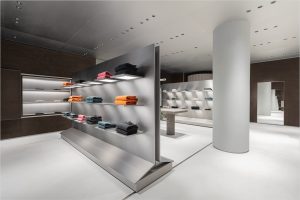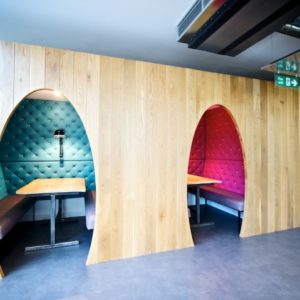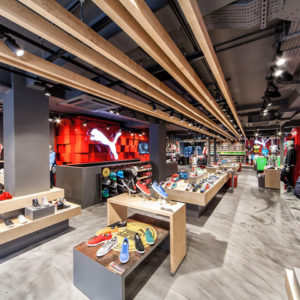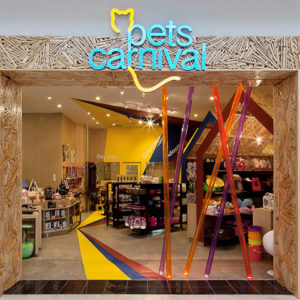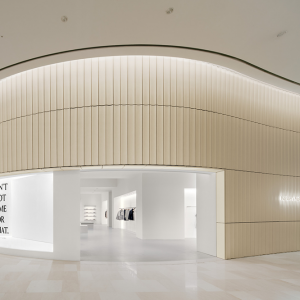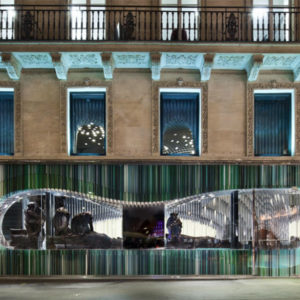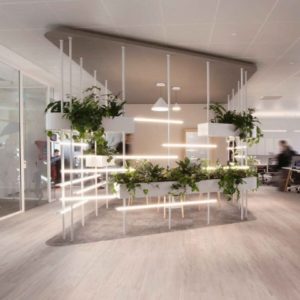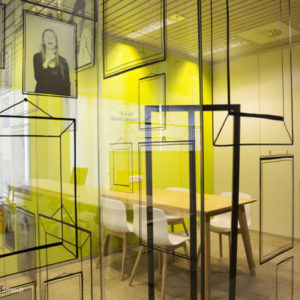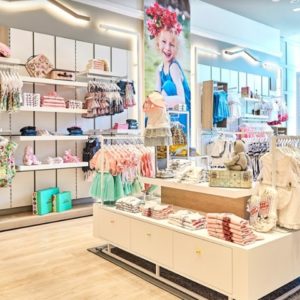
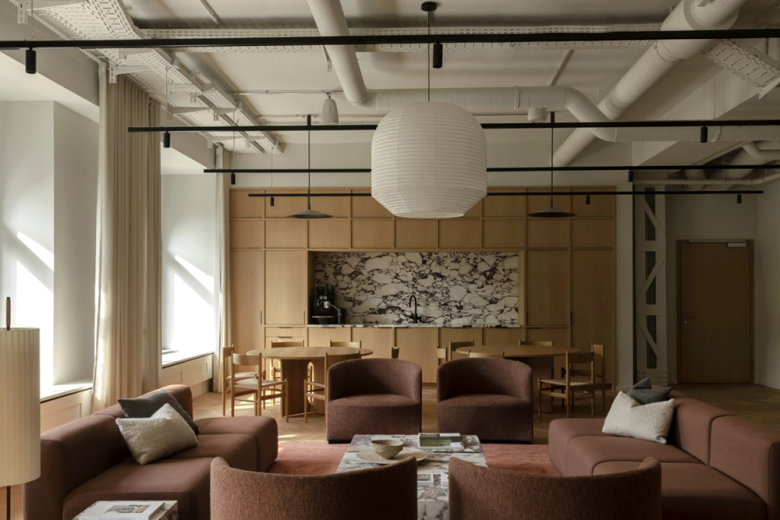
Found within one of Berlin’s most famous and historic monuments, The Office Group’s (TOG) latest location in Linden Palais provides an elegant, yet relaxed atmosphere for its coworking patrons. Norm Architects designed an inspired and welcoming space for The Office Group (TOG) Coworking Linden Palais in Berlin, Germany.
Marble kitchens, large loft-like lounge areas with exceptionally high ceilings, and exquisite herringbone parquet flooring, as well as a salon on the top floor provide an impressive backdrop for people to work creatively and productively in the new TOG workspace. Located on the prominent boulevard of Unter den Linden, Linden Palais sits proudly amid Berlin’s most famous and historic monuments. Completed back in 1908, it’s one of the few buildings that wasn’t destroyed during World War II, why it still tells stories of time through striking ornamentation, precious ceiling mosaic, neoclassical stucco, and historic marble inlays that all serve as a stimulating contrast to the newly designed workspaces.
Being the former home of the French embassy, the Linden Palais has amazing views over Berlin and nearly 5.000 m2 of workspace across seven floors – with the upper floor being an extension designed later by David Chipperfield Architects. The space boasts an elegant yet relaxed atmosphere, which calls for informal meetings over a cup of coffee brewed by a local coffee roaster, while offering a beautiful home for everyone, from young startups to freelancers or experienced entrepreneurs.
The colour scale of the interior is inspired by the colours of the original entrance ceiling – heavy colours brought out by marble, gold, wood, and stone, which we have interpreted in more subtle colour references to maintain an overall minimal look. Each colour serves as a base for the interior in each of the floors, while also functioning as refined wayfinding.
The building comes together through two separate concepts that make up a whole. The first takes inspiration from the surrounding environment; Under den Linden, mimicking the rhythm of the trees lined up along the historic boulevard through columns and greenery in the spacious lobby, giving the guest an urban outdoor feel. Concrete floors and industrial yet tactile materials emphasize the references to the city structures of the neighboring settings.
The reception and associated lounge area are to be experienced as an out-door space. We have strived to create this feeling through an interpretation of the essence of such a space, while playing with the limits of inside and outside.
A defining characteristic of ‘Unter den Linden’ is the Linden trees along the boulevard. With rows of pillars and other repetitive elements, the theme of the alley continues inside the shared office space. These elements define the different zones of the ground floor and make the experience of discovering the space more interesting, by not showing the entirety at first glance. An added interior colonnade creates a transition between open public space and more enclosed work zones, forming an experience of moving between exterior and interior spaces.
Well-being and productivity go hand in hand. Therefore, we strived to create an optimal working environment in which there is space for both focused work and for relaxed exchange among colleagues and interesting conversation partners.
Light-flooded rooms, thanks to large, partly ceiling-high windows and open-plan room concepts, make most lamps redundant, while the well-thought-out acoustics provide optimal conditions for conferences, conversations, or video calls.
The second concept of the Linden Palais is that of “The Heritage Apartment”, characterized by Herringbone Parquet flooring, detailed paneling, arched win-dows, and heavy drapes. Approaching that with a more contemporary design language means tightening up the interior with graphic panels, minimal inbuilt elements, and contemporary interpretations of classic lamps and chandeliers. Artworks decorate the walls and marble plinths on display, while rugs and book-cases accentuate the homey feel, creating an exclusive, residential impression, elegantly balancing the openness of the work environment with the laidback atmosphere of a private dwelling.
Design: Norm Architects
Photography: Jonas Bjerre-Poulsen, Sandie Lykke Nolsøe
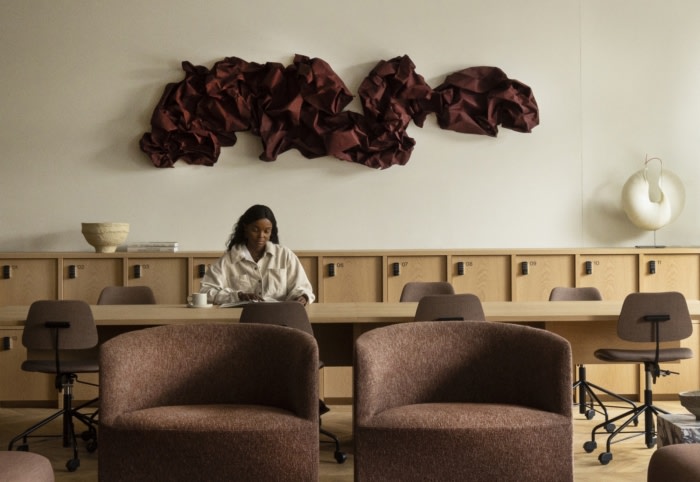
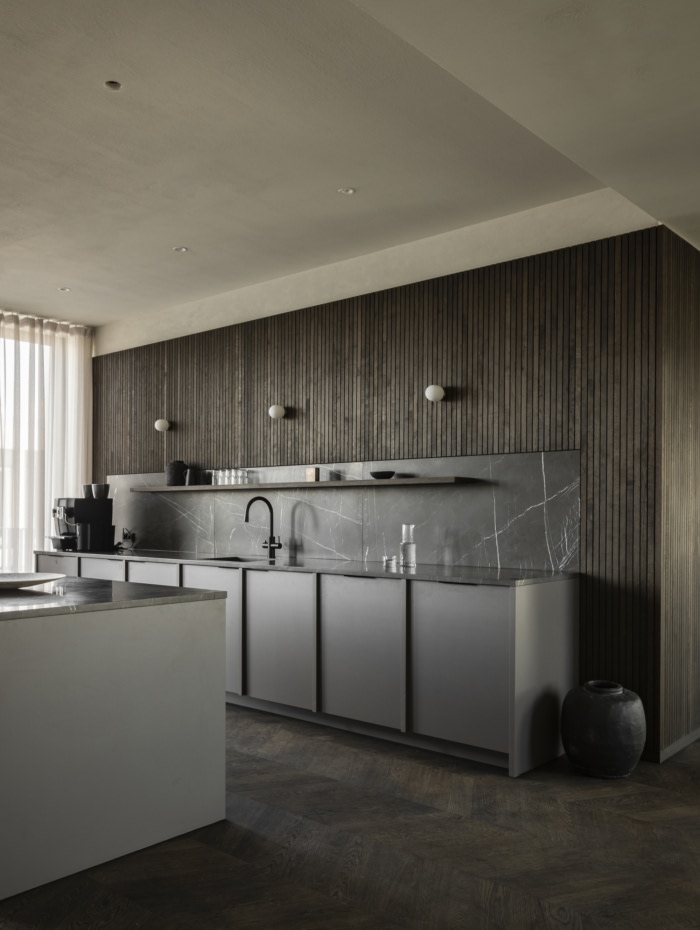
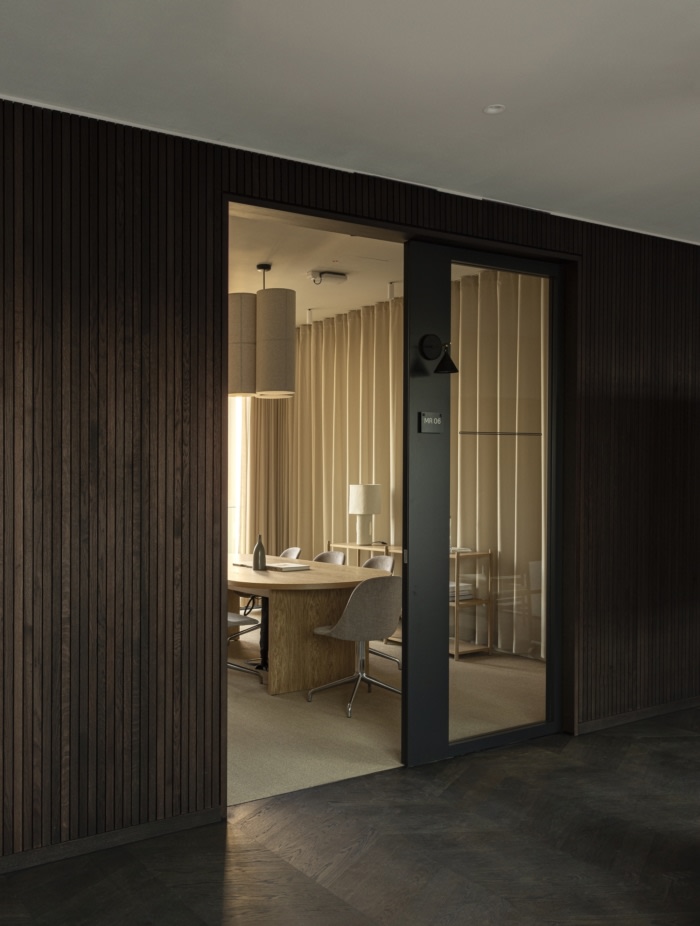
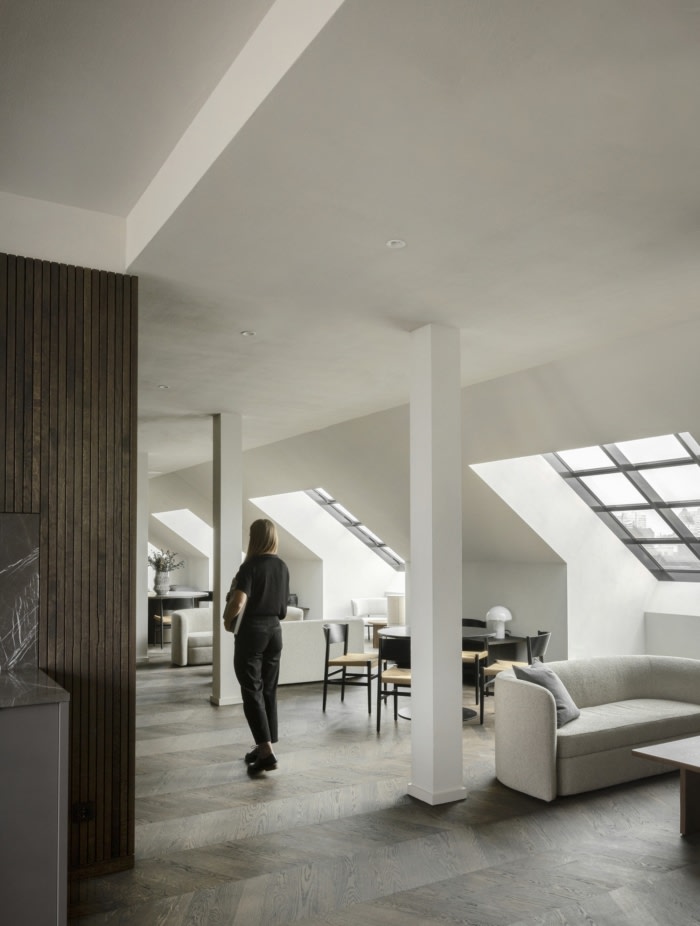
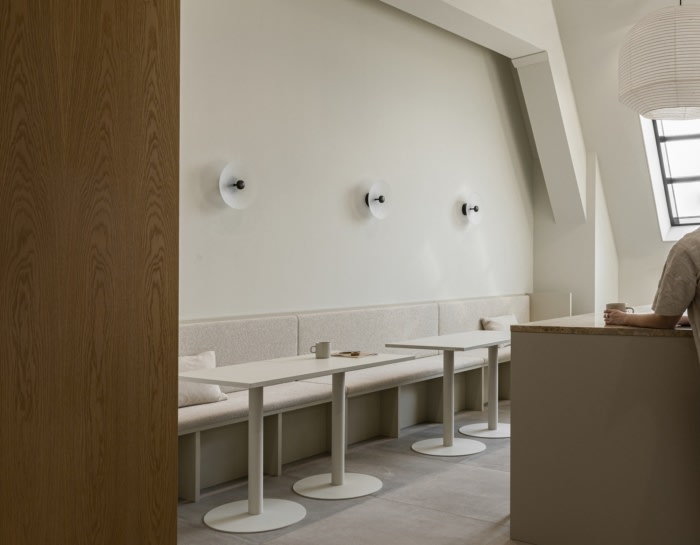
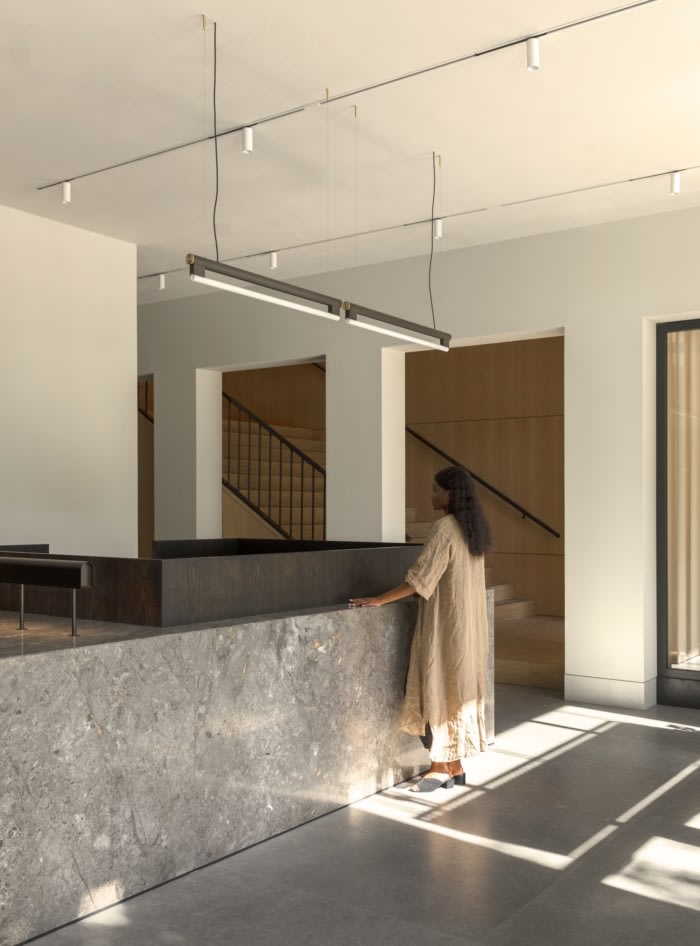
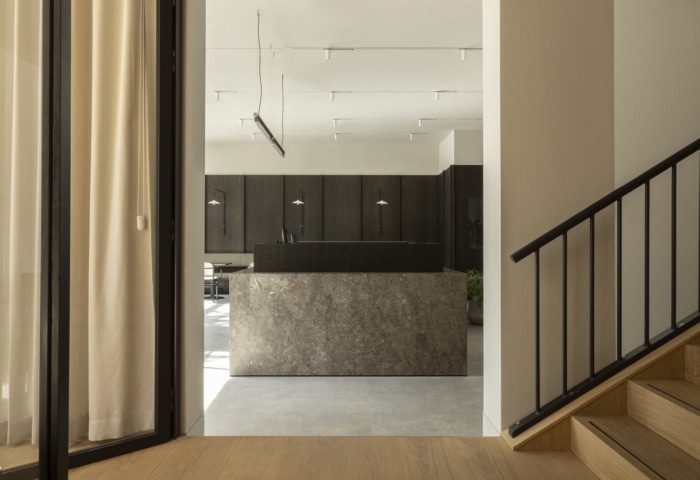
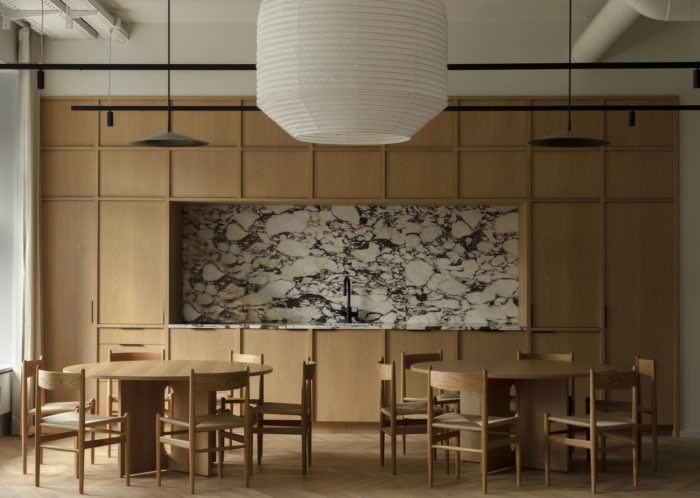
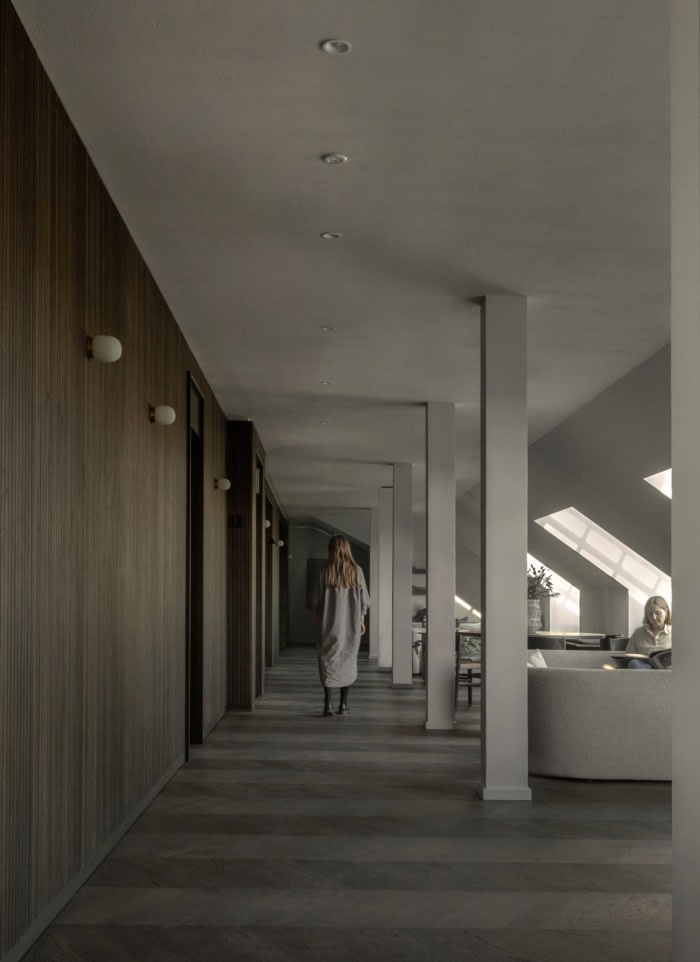
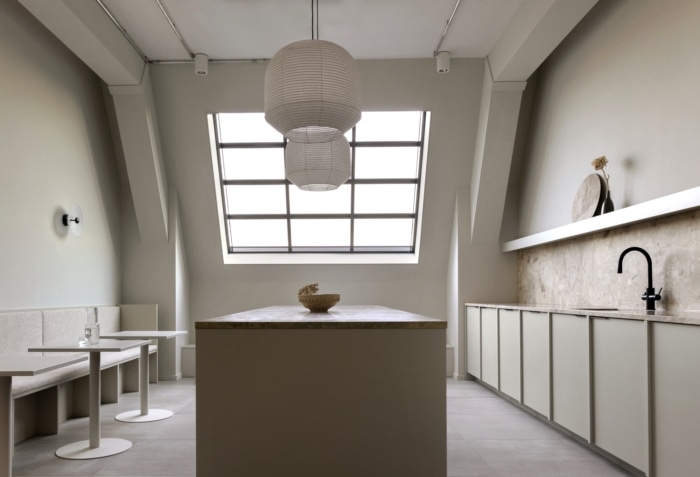
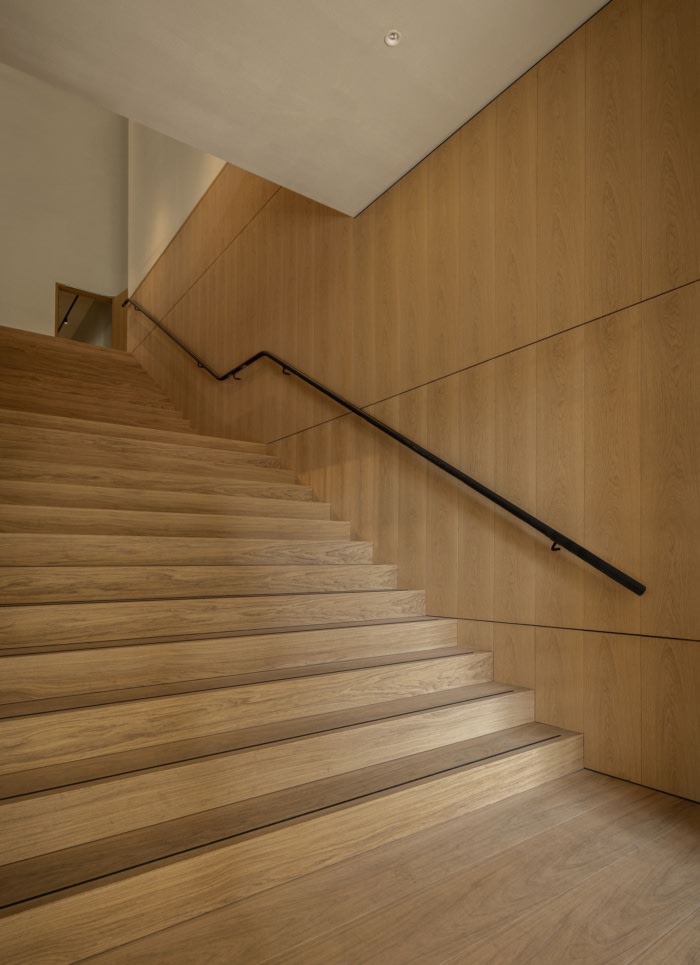
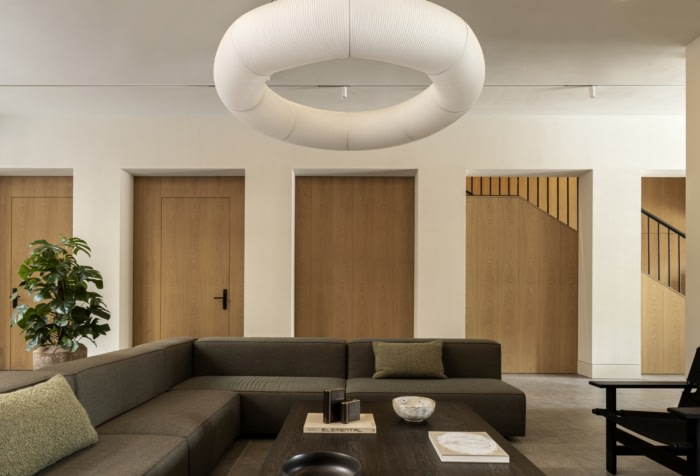
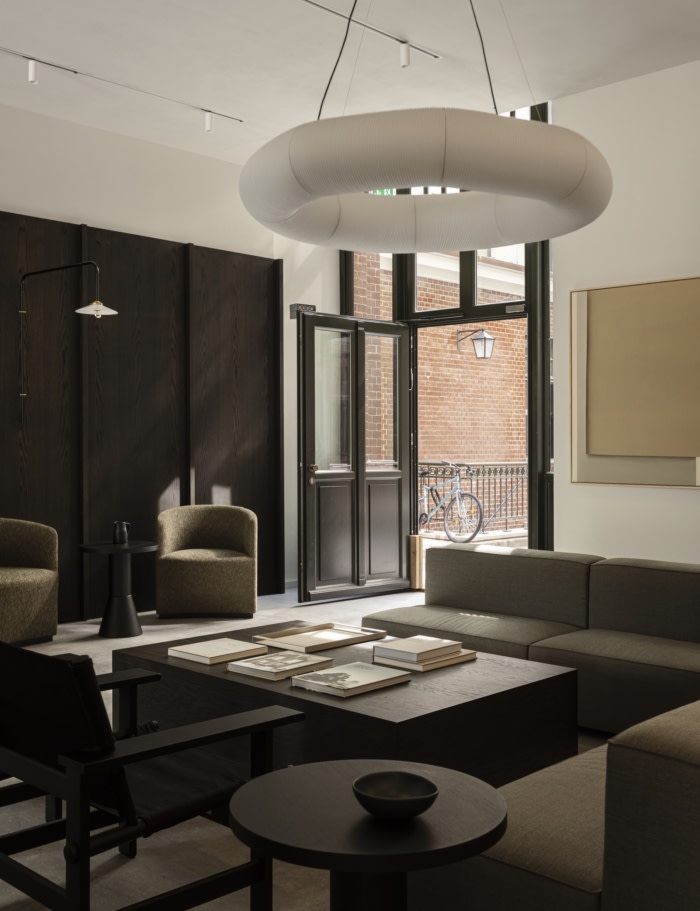

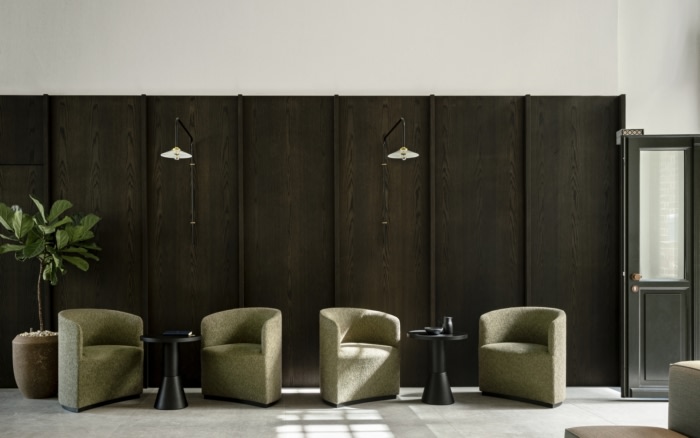
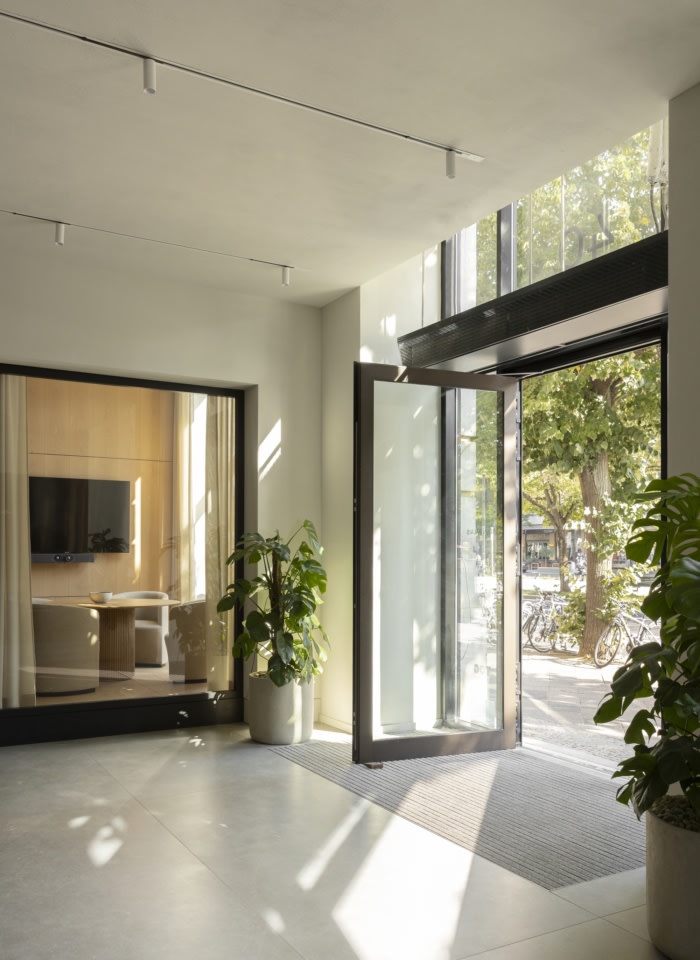
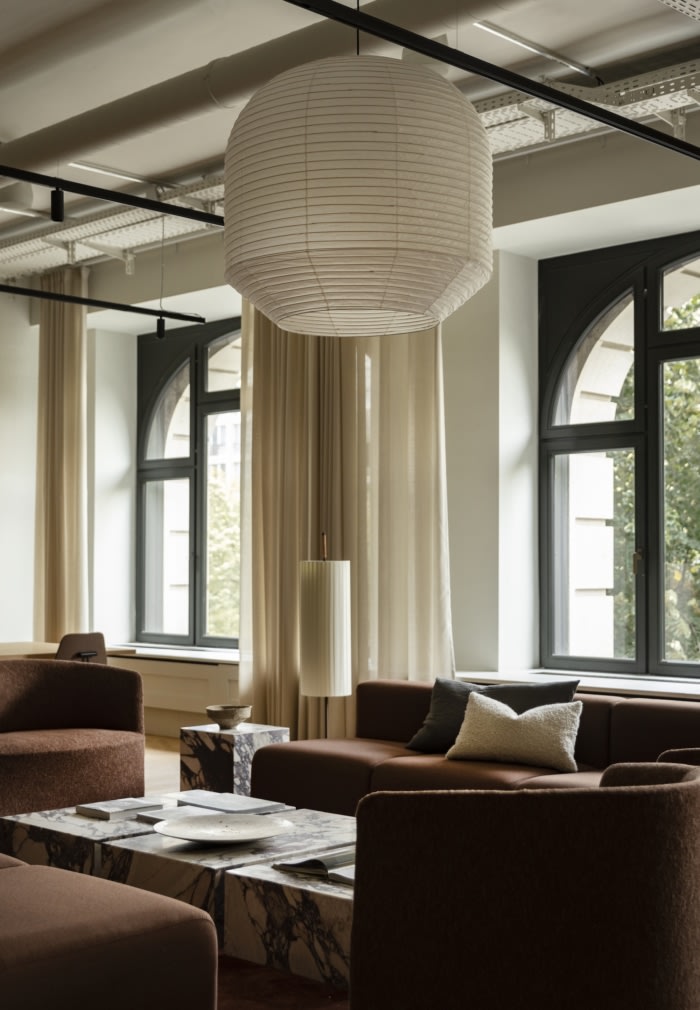
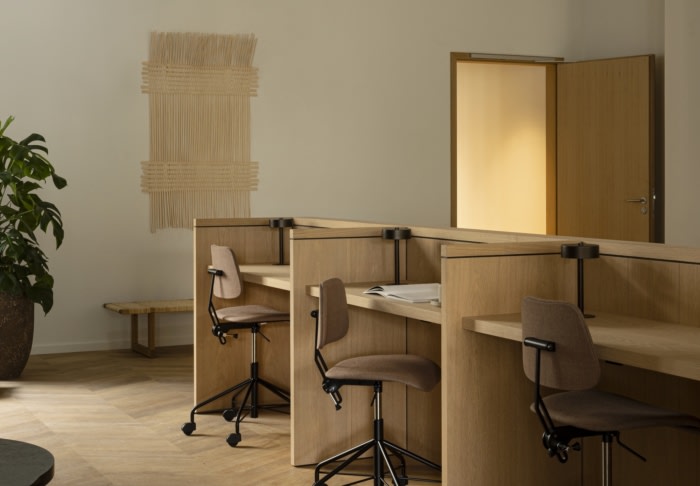
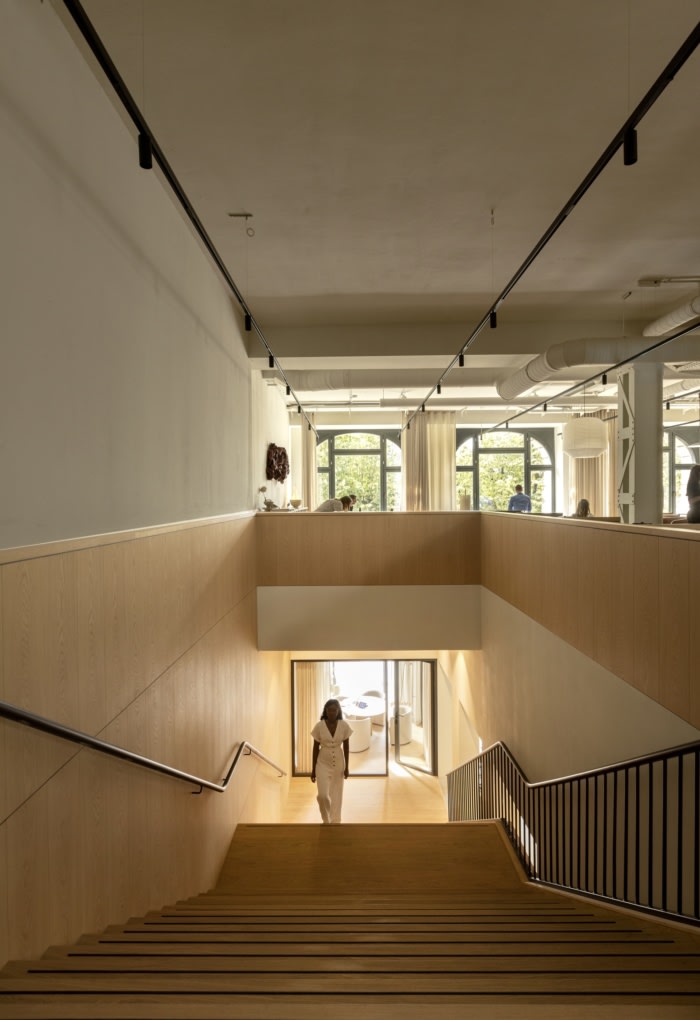
Add to collection

